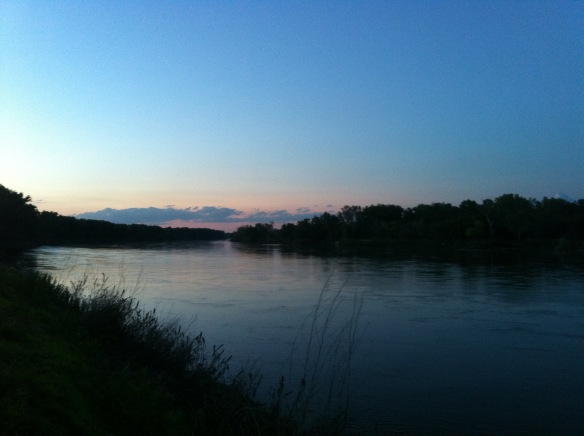“There is a resurgence of anti-migrant sentiment driven by fear:
fear of a loss of jobs, fear of the post 9/11 security syndrome, and then mostly the fear of a loss of identity.”
Depending upon where you live, did you imagine this related to your own community, region or even your own country?
The quote is from William L. Swing, the director general of the International Organization for Migration and relates to the Dominican Republic’s plan to remove Haitians. Many years ago I visited the Dominican Republic. Amid memories of wondrous natural beauty, a vibrant culture and welcoming people are recollections of squalid roadside homes and the armed guards at the end points of my resort’s private beachfront. These guards prevented intrusion into my vacation idyll. I have no idea of the many ways I might have been perceived as “other” by the people of this small Caribbean island, though “they” were an extension of my vacation experience.
The construction of identity and, therefore, discernment of those that are like us and those that are not manifests itself in numerous domains, such as ethnic, geographic, spiritual, political or economic. Thought not always negative, it is damaging when these barriers are inflamed by fear. It disturbs me to witness those who would fan the flames rather than blanket them with compassion. As I have noted before here, our compassion is diminished when we do not understand others and conversation is an excellent remedy for misunderstanding. It is for this reason I have found my community conversations in partnership with Habitat for Humanity, Justice for our Neighbors, Watie White and Creighton University to have been immensely rewarding.
In a few weeks I shall embark on my project, a couple of 830 mile long conversations. This adventure will lead me into places that may seem recognizable, but which I have not experienced before. I hope to reveal to myself and, in so doing, to others how we as Nebraskans construct and talk about our sense of identity, how we shape community and perpetuate our cultural narratives. Understanding others in our state, however, is just one side of the coin. Another motive for the project is to help us better understand who we are as individuals. 
The psychologist Carl Rogers said, “…a finely tuned understanding by another individual gives the recipient his personhood, his identity.” We learn about our sense of identity through our relationship with others, by considering our similarities and our differences, by weighing our experiences and our cultures. I was reminded of this by John A. Powell who, interviewed here by Krista Tippett on NPR’s On Being, observed that, “We are connected. What we need to do is become aware of it, to live it, to express it.”
How we define the other affects how we define ourselves. The project a couple of 830 mile long conversations is as much about us as individuals as it is about our fellow Nebraskans and the communities that we create and occupy together. I look forward to uncovering the warmth of the human spirit in this shared endeavor towards better connected lives.

Great post. I’ll have to check out that On Being interview. Thanks for sharing.